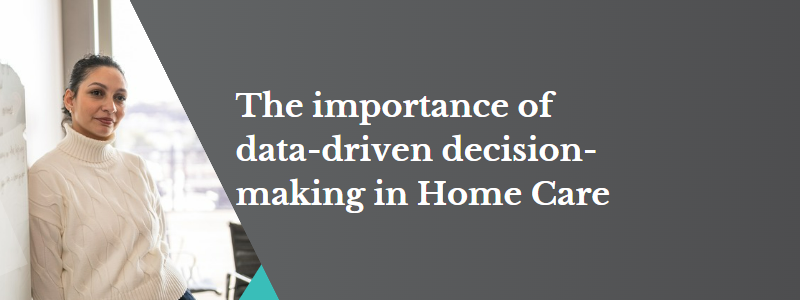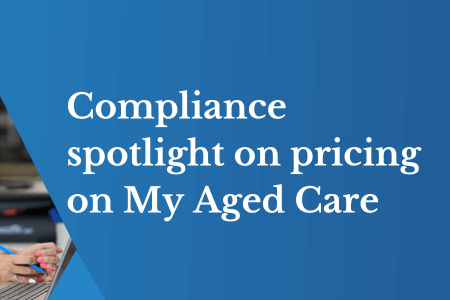How are you leveraging your data in Home Care?
August 13, 2024 | Data

By Taran Minhas, Senior Consultant
The importance of data-driven decision making is something we now read about in nearly every publication that comes out for the sector, including recent findings from the StewartBrown Aged Care Financial Performance Survey Report highlighting both the progress and challenges facing aged care. The Department of Health and Aged Care’s (DoHAC) in-home aged care reform agenda is also on the horizon now.
Currently, the home care sector has seen a slight increase in operating results, with a surplus of $3.41 per client per day, but staffing remains an obvious concern. The decrease in staff hours to an average of 5.13 per client per week (compared to 5.14 hours same time last year) underscores the need for workforce solutions.
The latest report from the Commission covering January to March 2024 tells us that compliance for home services now stands at 64%, a record low, with 36% of home services audited falling below the minimum requirements of the Standards. This is a stark decline from December 2018, when 88% of home services providers were compliant.
That means, over one in three home care providers did not meet all the requirements of the Aged Care Quality Standards.
Quality Standard 2 (Ongoing assessment and planning with consumers) and Quality Standard 8 (Organisational governance) have the lowest rates of compliance in both residential care and home services. The issues here are abundantly clear to the Commissioner as well – who is now changing their processes for home services quality audits to assess all services of a single provider in one quality audit, resulting in triple the audits last quarter compared the quarter prior.
These statistics are not just numbers – they’re a call to action, as we approach the implementation of the Support at Home program, scheduled for July 2025.
The DoHAC’s reform agenda holds several initiatives that require collecting and analysing heaps of quantitative and qualitative data that can help tailor services more effectively to the older adults’ needs (including the Single Assessment System, Integrated Assessment Tool, Star Ratings, Quality Indicators, QFRs and Provider Operations reporting).
As a result, the transition to the new Support at Home program, replacing the Home Care Packages Program and Short-Term Restorative Care Programme from July 2025, will require careful planning and execution. Data will be crucial in ensuring a smooth transition and in measuring the success of the new program.
Proactive organisations operating in home care are already preparing for these changes by considering the following:
- Invest in robust data collection, analysis and transition planning: These will be essential for tracking progress towards milestones for reform changes, identifying areas for improvement and establishing new key performance indicators.
- Explore current digital systems and their potential for interoperability, to save time and resources for the organisation later. Data is key and new technologies like AI will introduce significant opportunities to operate more efficiently but will take time to plan and implement.
- Participate in industry surveys and consultations: Aged Care Engagement Hub is a prime resource of how providers can stay up to date AND contribute valuable data to shape the future of the sector.
- Engage in ongoing training and development: Ensure that staff are equipped to work with the new data-driven processes and technologies.
By embracing data-driven decision making, we are not only preparing for the upcoming reforms but also driving continuous improvement in the quality and efficiency of home care services.
As the National Aged Care Provider Conference 2024’s Pre-conference workshops report puts it – “The data that aged care services collect should ultimately be about the experience of the person in care, shaping a story that can help turn information into insights.”
As we move forward, let’s commit to harnessing the power of data to inform our strategies, improve our services, and, enhance the lives of those we care for. If you’d like to discuss support for transitioning through the reforms, please get in touch.


